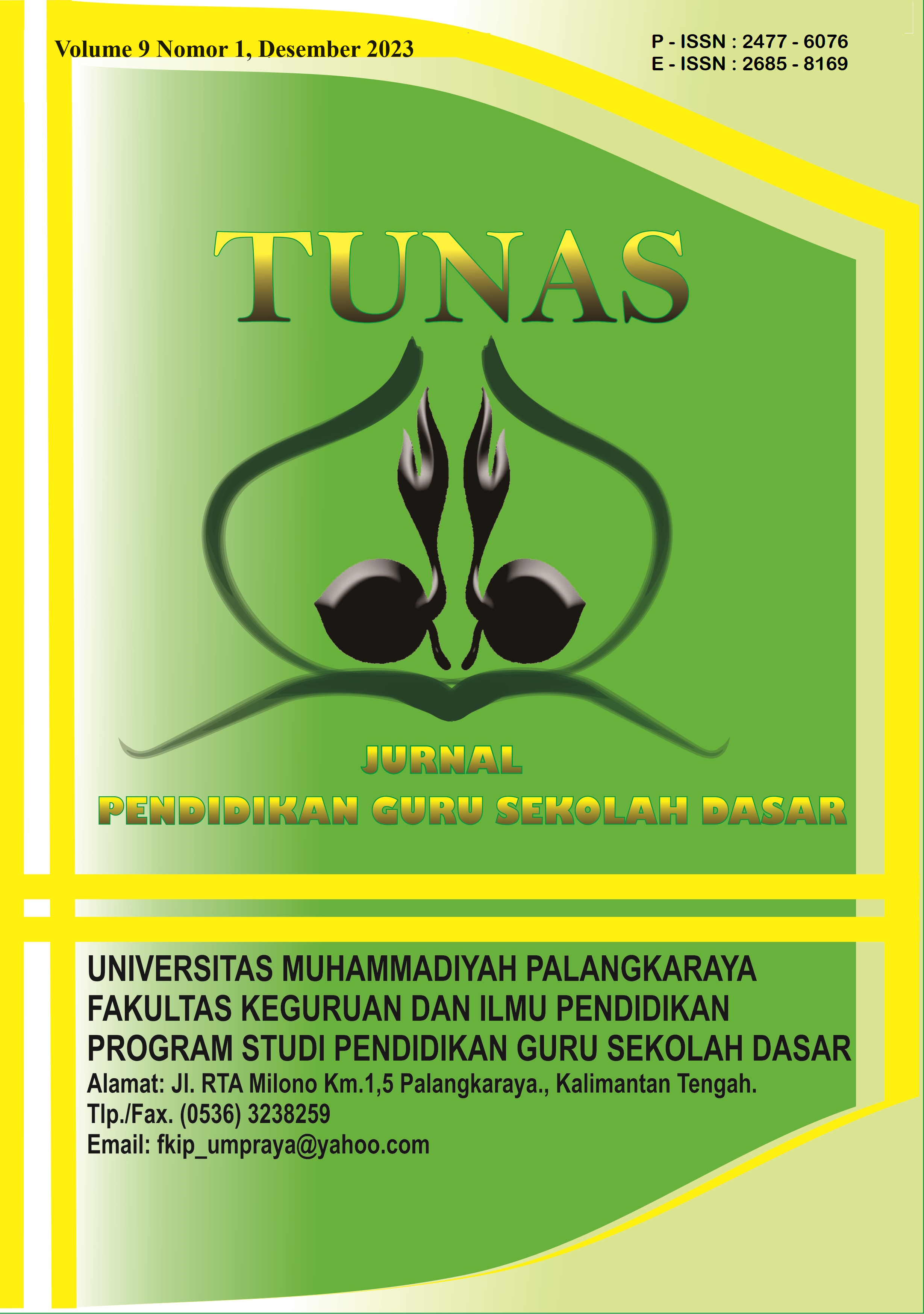Problematics of Science Learning With Limited Educators at Sentul Community Learning Center Kuala Lumpur
Main Article Content
Abstract
Background: In the context of science learning, the readiness of teaching staff greatly influences learning because the difficulties experienced by teachers are a trigger for learning failure in students and give rise to the view that science is a difficult subject. Aim: The aim of this research is to analyze the problems of science learning within the limited teachers in the Sentul Community Learning Center Kuala Lumpur. The Sentul Community Learning Center is a non-formal school for Indonesian immigrant children who do not have the opportunity to attend formal school in Kuala Lumpur. Method: This research uses a qualitative approach, and the type of research is descriptive research. The data collection methods used were interviews, observation, and documentation. Results and Dıscussion: In implementing science learning at the Sentul Community Learning Center, there are many limitations, especially in terms of teachers. Science learning is taught to students in grades three to six at one time because the Sentul community learning center lacks teachers and there are no adequate facilities to support science learning. Conclusion: Even though science learning at the Sentul community learning center is not yet effective and efficient, considering all the limitations of teaching staff as well as media and infrastructure for science learning, the implementation of learning at the Sentul community learning center is one form of effort made so that students receive education equivalent to formal schools.
Downloads
Article Details

This work is licensed under a Creative Commons Attribution-ShareAlike 4.0 International License.
Authors who publish with this journal agree to the following terms:
- Any article on the copyright is retained by the author(s).
- The author grants the journal, right of first publication with the work simultaneously licensed under a Creative Commons Attribution License that allows others to share work with an acknowledgment of the work authors and initial publications in this journal.
- Authors are able to enter into separate, additional contractual arrangements for the non-exclusive distribution of published articles of work (eg, post-institutional repository) or publish it in a book, with acknowledgment of its initial publication in this journal.
- Authors are permitted and encouraged to post their work online (e.g., in institutional repositories or on their websites) prior to and during the submission process, as can lead to productive exchanges, as well as earlier and greater citation of published work.
- The article and any associated published material is distributed under the Creative Commons Attribution-ShareAlike 4.0 International License
References
Agung, A, S., Idris., & Ayurachmawati, P. (2017). Analisis Kesulitan Belajar Ipa Siswa Kelas IV SD Negeri 01 Karang Melati. Jurnal Pendidikan Dan Konseling, 105(2), 79. https://core.ac.uk/download/pdf/322599509.pdf
Artawan, I. K., Pujani, N. M., & Juniartina, P. P. (2022). Analisis Kesulitan Guru dalam Melaksanakan Pembelajaran IPA Terpadu di SMP Negeri 8 Denpasar. Jurnal Pendidikan Dan Pembelajaran Sains Indonesia (JPPSI), 5(1), 89–98. https://doi.org/10.23887/jppsi.v5i1.46345
Diana, D., Sukamti, S., & Winahyu, S. E. (2022). Analisis Pemanfaatan Media Pembelajaran IPA di SD. Jurnal Pembelajaran, Bimbingan, Dan Pengelolaan Pendidikan, 2(11), 1110–1120. https://doi.org/10.17977/um065v2i112022p1110-1120
Dinatha, N. M., & Laksana, D. N. L. (2017). Kesulitan Belajar Siswa Dalam Mata Pelajaran IPA Terpadu. Pendidikan Dasar Nusantara, 2, 214–223.
Fitriyani, N., Sidiq, Y., Aji, G. T., Nizar, M., Samsuri, M., & Hamranani, S. S. T. (2023). Improving Children’s Education through the Tutoring Program at Sentul Malaysia Kuala Lumpur Tutoring Studio. International Conference on Education for All, Iceduall, 124–129.
Indrawati, E. S., & Nurpatri, Y. (2022). Problematika Pembelajaran IPA Terpadu (Kendala Guru Dalam Pengajaran IPA Terpadu). Educativo: Jurnal Pendidikan, 1(1), 226–234.
Insani, M. D. (2016). Studi Pendahuluan Identifikasi Kesulitan Dalam Pembelajaran Pada Guru IPA SMP Se-Kota Malang. Jurnal Pendidikan Biologi, 7(2), 81–93. http://journal2.um.ac.id/index.php/jpb/article/view/723/454
Maulana, I., Suryani, N., & Asrowi, A. (2019). Augmented Reality: Solusi Pembelajaran IPA di Era Revolusi Industri 4.0. Proceedings of The ICECRS, 2(1), 19–26. https://doi.org/10.21070/picecrs.v2i1.2399
McGill, T., & Bax, S. (2005). Learning IT. International Journal of Information and Communication Technology Education, 1(3), 36–46. https://doi.org/10.4018/jicte.2005070103
Muhklis, D. A., Fiyani, C., & Putri3, K. P. (2023). Tinjauan Literatur Pemanfaatan Teknologi Pembelajaran Terhadap Keterampilan Literasi Digital Pada Mata Pelajaran IPA di Sekolah Dasar. Jurnal Pendidikan Dan Pembelajaran, 2(02), 13–27. http://ojs.smkmerahputih.sch.id/index.php/juperan/article/view/261
Rahmah, S., Yuliati, L., & Irawan, E. B. (2017). Penguasaan Konsep Ipa Pada Siswa Sekolah Dasar. Prosiding Seminar Nasional PS2DMP ULM, 3(1), 35–40.
Sulistriani, S., Santoso, J., & Oktaviani, S. (2021). Peran Guru Sebagai Fasilitator Dalam Pembelajaran Ipa Di Sekolah Dasar. Journal Of Elementary School Education (JOuESE), 1(2), 57–68. https://doi.org/10.52657/jouese.v1i2.1517
Sulthon, S. (2017). Pembelajaran IPA yang Efektif dan Menyenangkan bagi Siswa MI. ELEMENTARY: Islamic Teacher Journal, 4(1). https://doi.org/10.21043/elementary.v4i1.1969
Utami, R. D., Prayitno, H. J., Pristi, E. D., Lestari, R. Y. A., Handayani, D., Tristiana, V., Yoviyanti, R., Afif, K., & Shohenuddin, S. (2023). Pemberdayaan Guru dan Fasilitator dalam Pembelajaran Kelas Rangkap pada Sanggar Belajar Malaysia Berpendekatan Profil Pelajar Pancasila. Buletin KKN Pendidikan, 5(1), 96–106. https://doi.org/10.23917/bkkndik.v5i1.22889
Wati, I., & Kamila, I. (2019). Pentingnya Guru Professional dalam Mendidik Siswa Milenial Untuk Menghadapi Revolusi 4.0. Prosiding Seminar Nasional Pendidikan Program Pascasarjana Universitas PGRI Palembang, 12(1), 364–370. e-mail: missindah49@gmail.com
Zuhaida, A., & Yustiana, Y. R. (2023). Tantangan Guru dalam Mengajar IPA: Studi Kasus Guru. Paedagoria : Jurnal Kajian, Penelitian Dan Pengembangan Kependidikan, 14(3), 226–231
